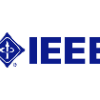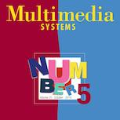计算机类 | SOCC 2019等国际会议信息6条
计算机体系结构,并行与分布式计算
SOCC 2019
IEEE International System-on-Chip Conference
全文截稿: 2019-04-21
开会时间: 2019-09-03
会议难度: ★★★★
CCF分类: B类
会议地点: Singapore
网址:https://www.ieee-socc.org/index.php
Multibillion transistor System on Chip (SoC) devices, comprised of RF, analog, optical, digital and Micro-Electro-Mechanical Systems (MEMS), are integral parts of ubiquitous communication, entertainment, medical, logistics and carrier products. SoC has been the enabling technology and main thrust behind the evolution of the Internet into a global communication and economic paradigm. Recent advances in systems, deep-submicron and nano process technology are unleashing new opportunities, and also new challenges. These challenges include managing design and verification complexity, EDAtools, on-chip communication, design reuse, handling inevitable faults, and the efficient integration of emerging MEMS and nano components into next generation SoCs.
For more than 30 years the IEEE International System-on-Chip Conference (SOCC) has been the premier forum for sharing the latest advancements in SoC architecture, systems, logic and circuit design, process technology, test, design tools, and applications. We proudly continue this tradition with the 2019 conference in Singapore.
The 32nd SOCC offers a three-day technical program including keynote and plenary speeches, oral and poster presentations, hot-topic panel sessions, and a full day of tutorials held by experts in the field. In addition, SOCC has a long tradition of high-class social events complementing the technical program, helping you to discuss your work with your colleagues, and enhancing your professional network.
计算机网络
LCN 2019
IEEE Conference on Local Computer Networks
全文截稿: 2019-05-03
开会时间: 2019-10-14
会议难度: ★★★
CCF分类: C类
会议地点: Osnabrück, Germany
网址:http://www.ieeelcn.org
The IEEE LCN conference is the premier conference on theoretical and practical aspects of computer networking. LCN is highly interactive, enabling an effective interchange of results and ideas among researchers, users, and product developers. Major developments from high-speed networks to the global Internet to specialized sensor networks have been reported at past LCNs. Please join us for our 44th annual meeting in Osnabrück!
人工智能
WAISE 2019
International Workshop on Artificial Intelligence Safety Engineering
全文截稿: 2019-05-13
开会时间: 2019-09-10
会议难度: ★★
CCF分类: 无
会议地点: Turku, Finland
网址:https://www.waise.org/
Research, engineering and regulatory frameworks are needed to achieve the full potential of Artificial Intelligence (AI) because they will guarantee a standard level of safety and settle issues such as compliance with ethical standards and liability for accidents involving, for example, autonomous cars. Designing AI-based systems for operation in proximity to and/or in collaboration with humans implies that current safety engineering and legal mechanisms need to be revisited to ensure that individuals –and their properties– are not harmed and that the desired benefits outweigh the potential unintended consequences.
The different approaches taken to AI safety go from pure theoretical (moral philosophy or ethics) to pure practical (engineering). It appears as essential to combine philosophy and theoretical science with applied science and engineering in order to create safe machines. This should become an interdisciplinary approach covering technical (engineering) aspects of how to actually create, test, deploy, operate and evolve safe AI-based systems, as well as broader strategic, ethical and policy issues.
Increasing levels of AI in “smart” sensory-motor loops allow intelligent systems to perform in increasingly dynamic uncertain complex environments with increasing degrees of autonomy, with human being progressively ruled out from the control loop. Adaptation to the environment is being achieved by Machine Learning (ML) methods rather than more traditional engineering approaches, such as system modelling and programming. Recently, certain ML methods are proving themselves very promising, such as deep learning, reinforcement learning and their combination. However, the inscrutability or opaqueness of the statistical models for perception and decision-making we build through them pose yet another challenge. Moreover, the combination of autonomy and inscrutability in these AI-based systems is particularly challenging in safety-critical applications, such as autonomous vehicles, personal care or assistive robots and collaborative industrial robots.
The WAISE workshop explores new ideas on safety engineering for AI-based systems, ethically aligned design, regulation and standards for AI-based systems. In particular, WAISE provides a forum for thematic presentations and in-depth discussions about safe AI architectures, bounded morality, ML safety, safe human-machine interaction and safety considerations in automated decision-making systems, in a way that makes AI-based systems more trustworthy, accountable and ethically aligned.
WAISE aims at bringing together experts, researchers, and practitioners, from diverse communities, such as AI, safety engineering, ethics, standardization and certification, robotics, cyber-physical systems, safety-critical systems, and application domain communities such as automotive, healthcare, manufacturing, agriculture, aerospace, critical infrastructures, and retail.
软件工程
ICSSA 2019
International Conference on Software Security and Assurance
全文截稿: 2019-05-14
开会时间: 2019-07-25
会议难度: ★★
CCF分类: 无
会议地点: St. Pölten, Austria
网址:http://www.icssa.events
TOPICS OF INTEREST ARE (BUT NOT LIMITED TO):
Secure software design/architecture
Secure software practices
Security requirements engineering
Security analysis tools and methods
Security evaluation criteria and methodology
Security education and training
Vulnerability, threat, and risk analysis
Malware detection/intrusion detection
Obfuscation and software security
Usability of secure/security software
Security awareness for software developers
人工智能
NLPCC 2019
International Conference on Natural Language Processing and Chinese Computing
全文截稿: 2019-05-15
开会时间: 2019-10-09
会议难度: ★★
CCF分类: 无
会议地点: Dunhuang, China
网址:http://tcci.ccf.org.cn/conference/2019/index.php
The CCF International conference on Natural Language Processing and Chinese Computing (NLPCC) is the annual meeting of the CCF TCCI (Technical Committee of Chinese Information, China Computer Federation). NLPCC is a leading international conference specialized in the fields of Natural Language Processing (NLP) and Chinese Computing (CC). It serves as a main forum for researchers and practitioners from academia, industry, and government to share their ideas, research results and experiences, and to promote their research and technical innovations in the fields. Previous NLPCC conferences were successfully held in Beijing (2012), Chongqing (2013), Shenzhen (2014), Nanchang (2015), Kunming (2016) , Dalian(2017), and Hohhot(2018).
Today, NLP and CC technologies are among the most active research and development areas due to rapid advancement of the Internet as well as the worldwide proliferation of mobile devices and social media. The fields are facing many new challenges arising from intelligent applications and big data, such as business intelligence, social analytics, etc. The Seventh Conference of NLPCC will focus on Natural Language Analysis and Understanding in Big Data and Artificial Intelligence including Fundamental Research in Language Computing, Multilingual Access, Web Mining/Text Mining, Machine Learning for NLP, Knowledge Graph, Information Extraction, Question Answering, Information Retrieval, Chatbot, NLP for Social Networks, as well as the Applications of Language Computing.
NLPCC 2019 welcomes original technical papers on new concepts, innovative research, systems, standards, testing & evaluation, applications, and industrial case studies related to NLP & CC. Authors are invited to submit complete and unpublished papers in English or in Chinese.
计算机科学与技术
ESCC 2019
European Symposium on Computer and Communications
全文截稿: 2019-06-20
开会时间: 2019-11-20
会议难度: ★★
CCF分类: 无
会议地点: Paris, France
网址:http://www.escc.net
The ESCC 2019:European Symposium on Computer and Communications aims to provide an international forum for presentation of original research results, as well as exchange and dissemination of innovative and practical development experiences. The conference covers all aspects of on-going research in most state-of-the-art areas of computers and communications. Papers describing original work are invited in any of the computer and communications areas that the Call for Papers considers.
下载Call4Papers App,获取更多详细内容!


登录查看更多
相关内容
LCN:IEEE Conference on Local Computer Networks。
Explanation:本地计算机网络IEEE会议。
Publisher:IEEE。
SIT: http://dblp.uni-trier.de/db/conf/lcn/
Arxiv
4+阅读 · 2019年1月4日





